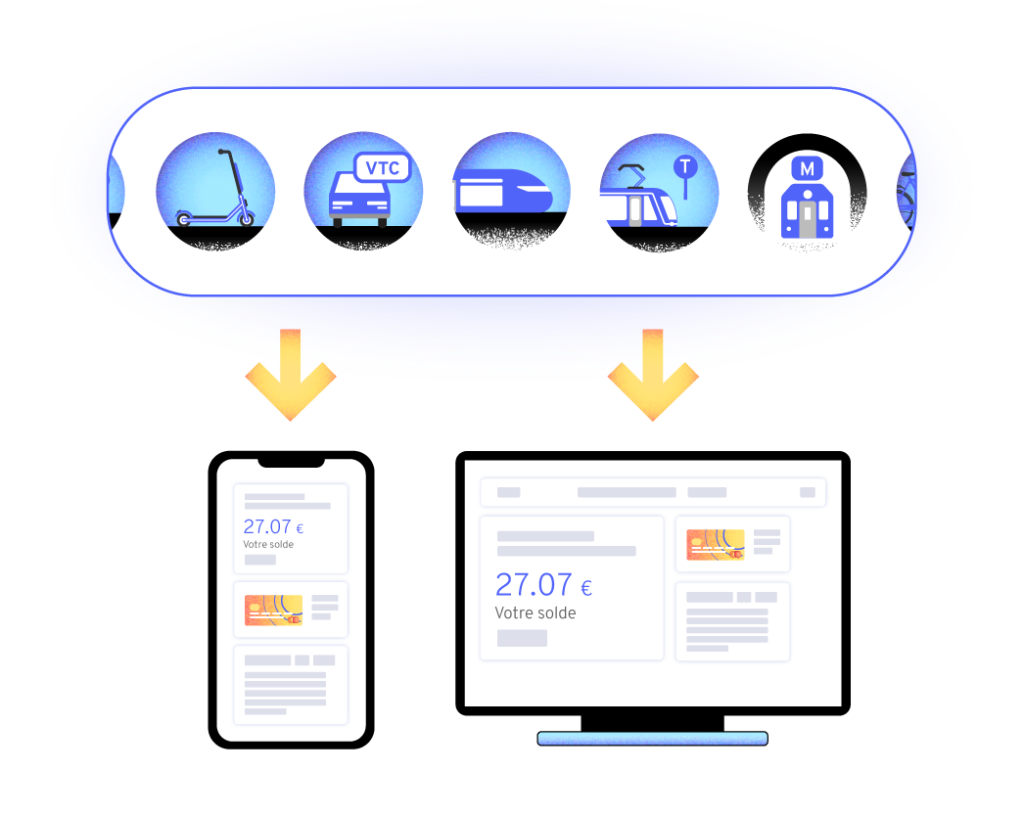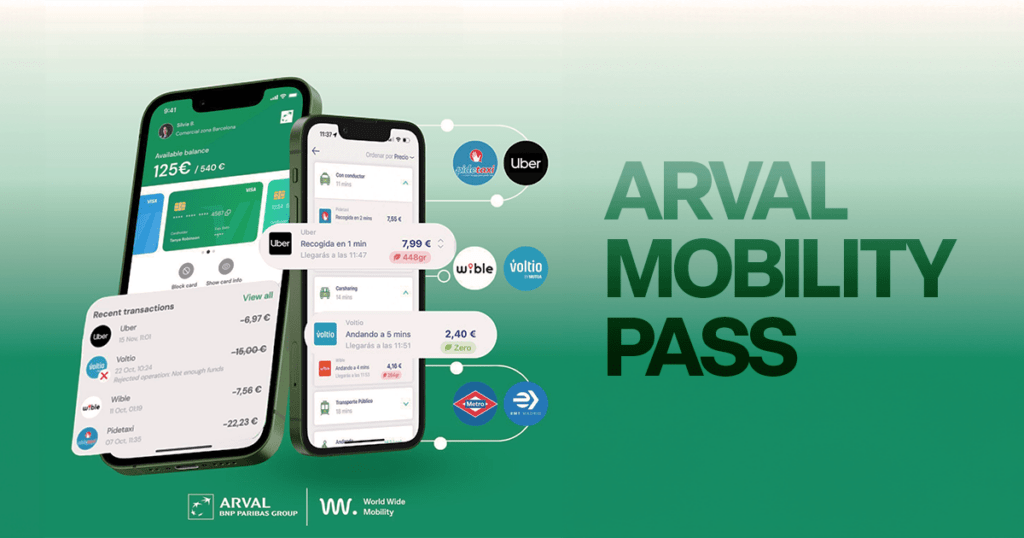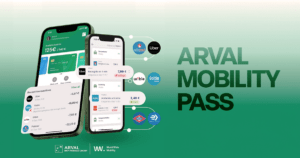French employee commuting habits have changed considerably. Whereas in the past, the vast majority of people used their cars to get to work, the trend shows that soft mobility is increasingly being used. Many mobility players are therefore offering their services directly to companies to facilitate the implementation of government measures, such as by creating MaaS applications dedicated to companies. We have, therefore, in the course of this infographic, analyzed the trends in corporate mobility as well as the players present in this market.
Commuting to and from work in a few figures
According to Statista, in 2019, nearly 32% of French employees say it will take between 15 and 29 minutes to get to their workplace, with an average distance of about 18 kilometres. To go there, the majority use their cars (66%). The reasons are varied, but 49% say use it because it is their only mode of transport. 45% because it is the fastest mode of transport and 41% to be more autonomous in their displacements. It should be noted that Lyon is the only city in France where more employees use public transport than the car. In fact, 41% of Lyon residents use MaaS transit, compared to 35% by car. These figures explain why it was crowned champion in terms of urban mobility in 2019.
Players mobilized for accessible and sustainable mobility
Over the last five years, mentalities have changed, particularly in terms of sustainable mobility. In fact, the Energy Transition Law for Green Growth will be adopted in 2014. A law that refers for the first time to the mobility plan (PDM). Consisting of a set of measures, this plan aims to optimise the employees’ daily journeys. The aim is to reduce, among other things, polluting emissions from road traffic. Only 8% of 17,348 companies were in compliance with this mobility plan. This is a very low figure, which makes it impossible to measure the effectiveness of this type of measure.
French company aids
However, according to a study carried out by Alphabet France and Ifop, 50% of workers declare that their companies offer the possibility to benefit from mobility solutions and/or services. Solutions that enable, in particular, to improve their quality of life at work. Indeed, 27% of those surveyed benefit from partial or total reimbursement of their transport tickets. An action that is attractive for 65% of those surveyed.
However, the most expected solution is the reimbursement of mileage expenses. In fact, 26% of those surveyed benefit from it and 76% of those surveyed find this solution attractive. It can be seen, therefore, that the car still has a certain appeal for the French workers, although its use is declining. Moreover, 32% of the employee surveyed have already carpooled to make their home-work trips, and 44% of nonpracticing carpoolers are interested. A good alternative to reduce the number of cars on the roads!

Mobility also has a significant impact on the well-being of employees. Indeed, for 38% of those surveyed, mobility has a positive impact on their quality of life at work. However, 14% of respondents said that it has a negative impact on their well-being at work. 64% of them feel they are wasting their time and 56% say they are stressing related to the increased attendance.
The advent of digital services for corporate mobility
With 72% of French people considering that future innovations in mobility will have a positive impact on their daily life, mobility solutions for companies are increasingly numerous. This is the case of EdenRed, which recently introduced its “Mobility Ticket”. Using a payment card and an mobile app, employees can pay both fuel costs and the new mobility benefits introduced by the Sustainable Mobility package. With his “Ticket Mobilité” account, the employee can, in particular, buy a bicycle, as he has a fixed price of €400.
Another solution is EdenRed, which recently introduced its “Mobility Ticket”. Using a payment card and a mobile app, employees can pay both fuel costs and the new mobility benefits introduced by the Sustainable Mobility package. With his “Ticket Mobilité” account, the employee can, in particular, buy a bicycle, as he has a fixed price of €400.
Or via a card such as Betterway, which allows companies to simplify the management of reimbursements for commuting. No more collecting receipts, Betterway is a virtual mobility pass that allows you to pay for all mobility in the region. This is done by using the credit allocated to a mobility service, whether linked to the sustainable mobility package or not.
Finally, if you need advice, there is also Citeazy. From writing the specifications to creating a MaaS application, this consulting firm helps companies set up their mobility plan. To discover the complete list of mobility solutions for employees, download now our infography.





